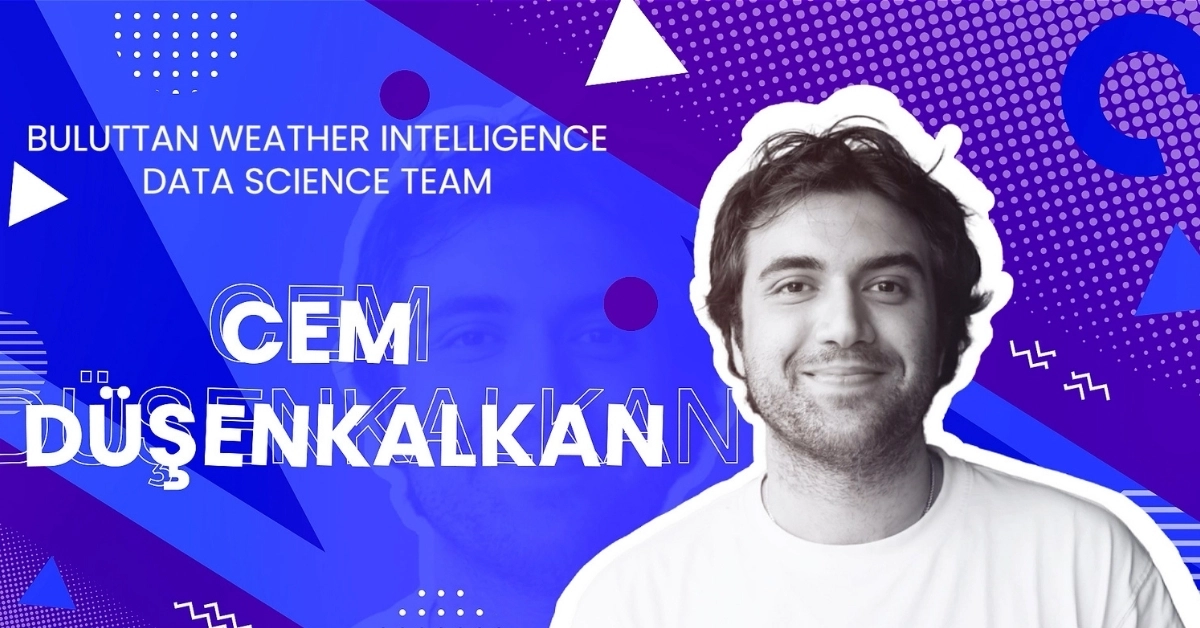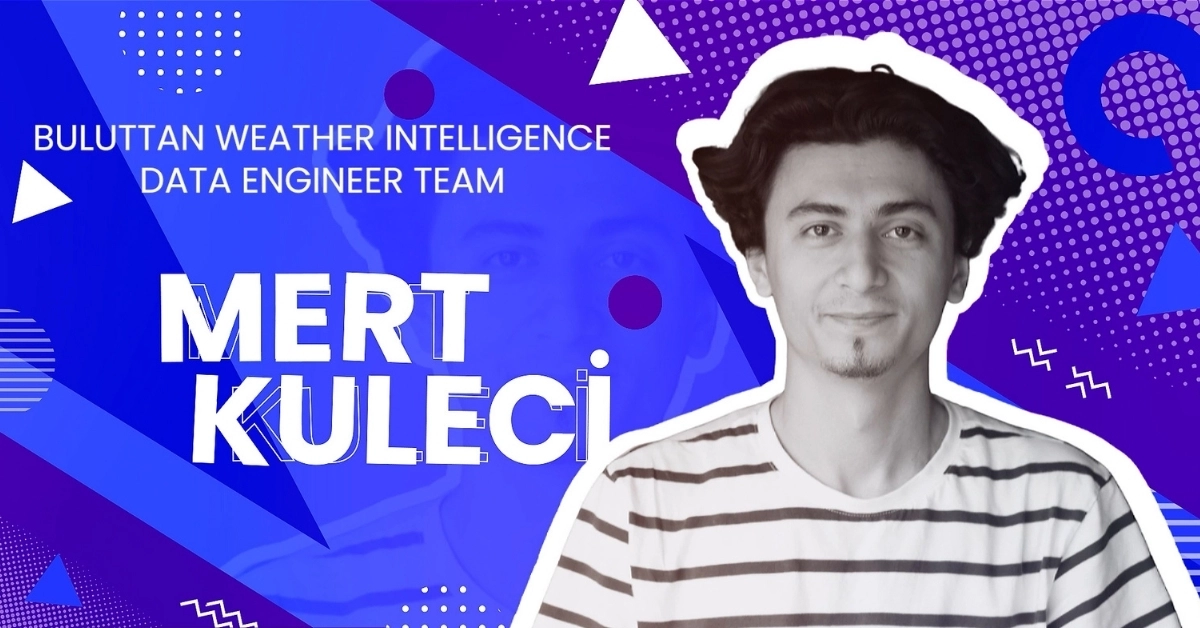In this episode of Buluttan Small Talks with Bedirhan. Bedirhan shares with us today what he does as a meteorological engineer at Buluttan, his views on the future of Buluttan, and the things he enjoys doing.
Gökmen: Bedirhan, welcome, how are you?
Bedirhan: I'm good, and you?
Gökmen: I'm doing great too. We came from Geneva, as you know, from the meteorology fair. Honestly, I'm a bit tired. What do you think about the developments there?
Bedirhan: The topic of sensors contributing to weather forecasts is exciting. Because the things we measure with sensors directly impact weather predictions.
Gökmen:Assimilation.
Bedirhan:Inputs added to the weather forecast program through assimilation, especially those from stations close to the ground, are crucial. There are significant developments related to drones in connection with them.
Already, we make a difference with our surface measurement data. These will contribute significantly.
Gökmen: Since the day we first met, I guess you've been improving yourself every passing month. How do you see it? Can the Bedirhan of one year from now imagine something much more advanced, or will Bedirhan's development within Buluttan parallel Buluttan's development? I'm asking, especially for new engineers to be a bit inspiring.
Bedirhan: I think about the areas where I've improved myself so far, and I believe that these will continue in the same way. I'm particularly excited about the effective use of the weather forecast program and its impact on projects lately. As a result of these developments, the products we create will be more successful, I believe.
Gökmen: For a company at our level, running its own models both physically and statistically, in terms of both meteorological dynamic models and machine learning models, is probably an important advantage and luxury, I presume.
Bedirhan: Yes, it can be considered a luxury because high-resolution models are costly. But they provide much better results for us. We do it for that reason.
Gökmen: A meteorological engineer or someone with a background in atmospheric science, intersecting paths with Buluttan, is probably not that easy, not that likely anymore, right?
Bedirhan: For someone who has truly developed themselves, someone enthusiastic, it's not really that difficult.
Gökmen: I wanted to ask you, actually. What do we expect from a meteorological engineer? Which meteorological engineers should show more interest in this place, and what skills and equipment should they possess?
Bedirhan: Firstly, they should truly embrace this profession and be enthusiastic about it. They should have things they are curious about. There should be things in their minds like, 'Why can't we do this better with models?' If they have a curious personality about such matters, I think this place is suitable for them.
Gökmen: And of course, we use various languages. Even if not many, we use various infrastructures, programming languages. It's probably important for them to have developed themselves in computer science as much as in meteorology, right?
Bedirhan: Certainly, this is getting easier day by day. Thanks to various technologies, as you know, but of course, there should be a certain foundation. Desire comes first in everything. When there's a desire, these things naturally follow.
Gökmen: So, Bedirhan, how do you see the progress here over the past year? For example, if we were to envision a bold dream for a year from now, do you think we might have reached a much more advanced point, perhaps beyond what we initially hoped for?
Bedirhan: Of course, I think about it. I think about the period before I joined the company too. I think about the coming year and see the exponential growth, frankly. This is expected in any startup, but our field is perhaps more open and provides a better environment for us. The world needs it. When we consider such things, that's how I see it.
Gökmen: Okay, Bedirhan, aside from meteorology, what else do you like? Maybe let's touch on that a bit. As balancing factors in work life, hobbies, sports, interests—perhaps people out there might take inspiration from what you do or think, 'I should give this a try too.' Because you deal with interesting things.
Bedirhan: Actually, these are not interesting; these are natural things. They used to be very natural; I love outdoor activities. I love them all; I play tennis. I often go mushroom picking. I like to participate in hiking and trekking activities. I enjoy cooking. And of course, due to our job, I like being outdoors, getting natural light during the day. Things like that.
Gökmen: For example, let me ask you one last thing: Currently, there's unfortunately not as intense an educational infrastructure in Turkey in the field of meteorology as the climate change that is affecting us. We have faculties in Istanbul at ITU and in Samsun. What would you like to say to friends who will graduate from here? As someone a few years ahead, and also inviting them to apply to Buluttan, how would you encourage them?
Bedirhan: Actually, parallel to what we just talked about, when there's interest, knowledge follows, I heard from our professor Mikdat. This issue is very important.
Gökmen: Firstly, a love for meteorology, then?
Bedirhan: Of course, it is. It's very challenging because doing something without interest, without passion, you can do it, but you can't develop it.
Gökmen: Then, let's close as we always do for those listening so that your weather is where you are. And let's also send a greeting to Burcu behind the camera.







